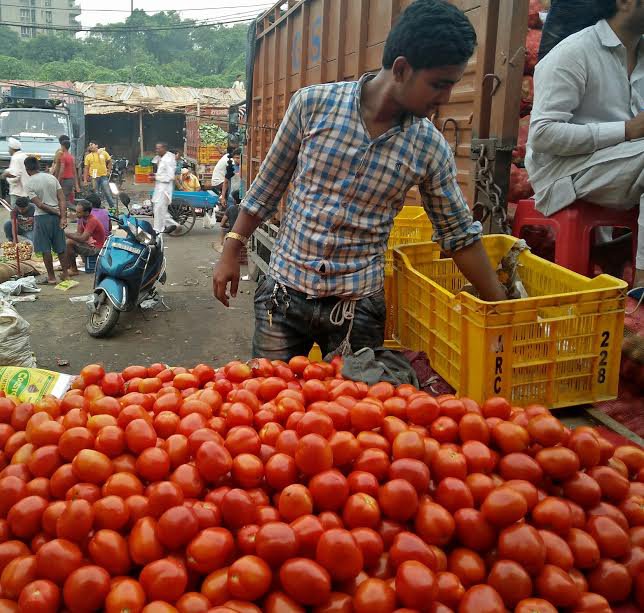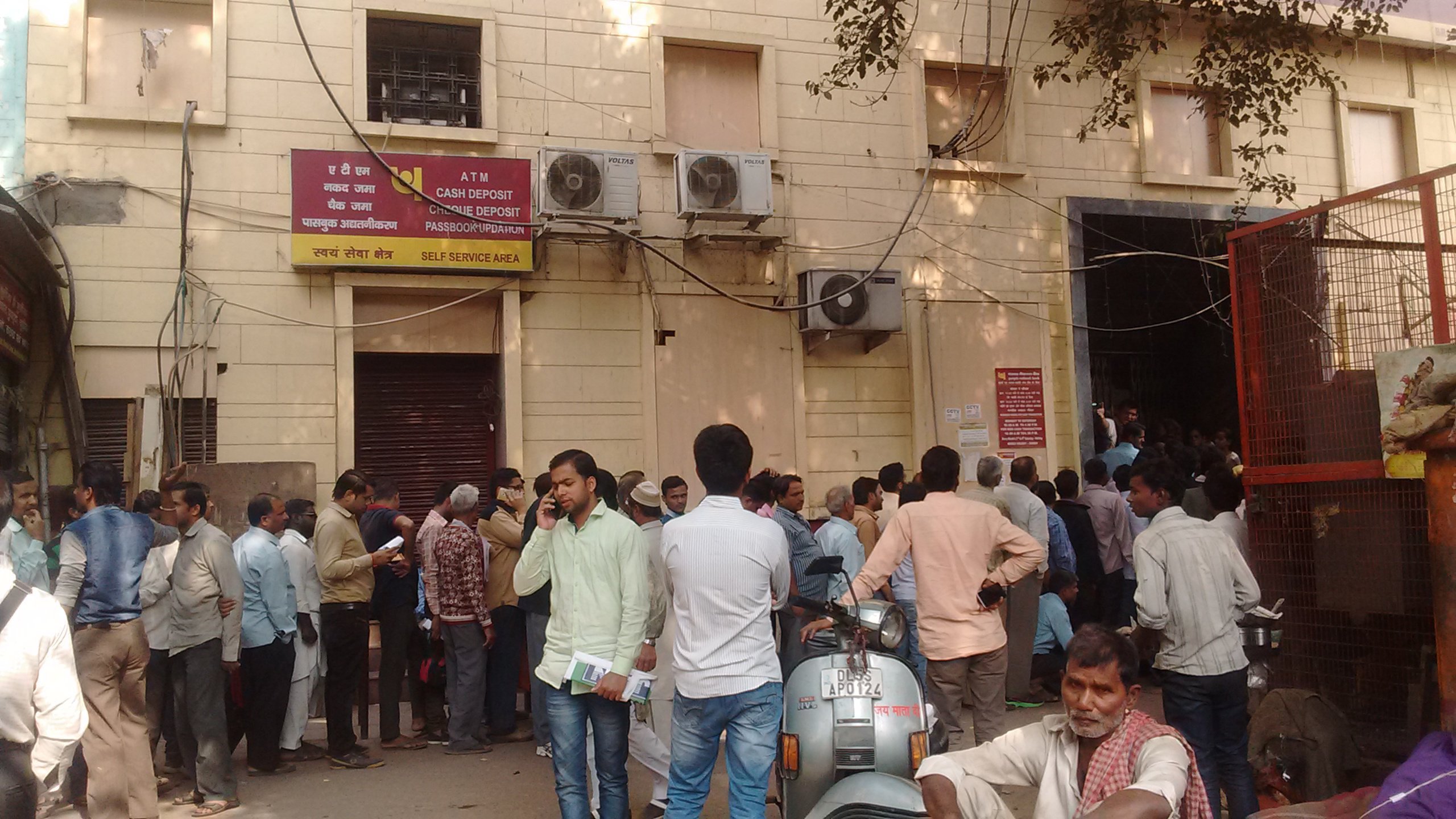New Delhi: Shiv Singh,22, has seen his business almost “crumble down” in the past one week. The tomato seller from Delhi’s Azadpur Vegetable Market, is packing up his stall for the day. It’s only 11 in the morning. “Business has been terrible for the past few days. Without cash in the market we are struggling to attract customers,” he says. Singh’s stall is a spec on the 80 acre sprawl of the Azadpur Mandi. The mandi, locals, say, never sleep. “We have been swatting flies since morning,” yawns Singh.

It has been a week since PM Narendra Modi announced his controversial demonetisation move, but Asia’s largest vegetable wholesale market is still to make peace with it. “Customer ask me why don’t we start accepting cards. Look around, do you think we have that kind of facility?” asks Singh.
Since our Prime Minister has relentlessly pitched for cashless transactions for the past few years, we visited trading hubs and small-time business of the Capital and tried to find out why are they so averse to cashless transactions.
Lack of Awareness
In East Delhi’s Gandhinagar area, there’s nothing that gives a visitor sense of being in Asia’s second biggest wholesale textile and garment market.
Most of the shops are shut. Those open, wait endlessly for a customer to turn up. There’s hardly one these days. But being the biggest textile market is not the only distinction of the Gandhinagar market. The place is also famous for its ‘only-cash’ transactions.
“Most of businessmen here are not well-educated and tech savvy to handle electronic payments. They are skeptical about it. Majority of the transactions take place in cash, followed by cheques and demand drafts,” says Harjeet Singh Kochhar, who owns Montoo Dresses in Ashok Gali, Gandhinagar.
Kochhar, who’s also president of Organisation of Traders and Industrialists in Gandhinagar, says there are around 20,000 shops selling different kinds of textiles and garments in the market. But very few opt for payments other than cash.
Lack of proper documents
Asked if the “only cash” payments are allowing certain shopkeepers to evade tax? Kochhar said:

“There might be few shopkeepers who are running their business without proper registration and licences. This might be the reason why sales tax officials were seen in the market during the last week. Otherwise, all our transactions are transparent and in the knowledge of authorities,” he said.
Labourers Only Accept Cash
For Rajender Kumar Goel, a metal scrap dealer in West Delhi’s Mayapuri scrap market, the November 9 announcement has ensured “no business
“The scrap industry involves a lot of labours who only accept cash. You can’t pay wages to a labour through net banking and credit/debit cards. It’s like a chain. Even if we accept payments in forms other than cash, what’s the use of it when others refuse to take it,” says Goel, who primarily deals with iron and steel scrap.
According to Goel, the only means of transaction in Mayapuri Scrap Market is cash and cheque.

“Since there’s no cash and there’s a limit on withdrawal, there’s no business, We have very small shops and most of the work involves physical touch with scrap and metal. Our hands and clothes are always dirty. We don’t have any knowledge about debit/credit card payments. How does the government expect us to do that in such a short period of time?” Goel asked.
The question of taxes
A lot of this small-time establishment manage to keep the cost of their services low because they manage to do away with extra taxes. “If we introduce card payment, additional taxes will have to be paid which will increase the price of the product. Plus, a 2 percent VAT will also be charged. But customers won’t understand all this and they will become unhappy” says Ajay Kukreja, a trader from Khari Baoli, Asia’s biggest wholesale market for dry fruits and spices.

















